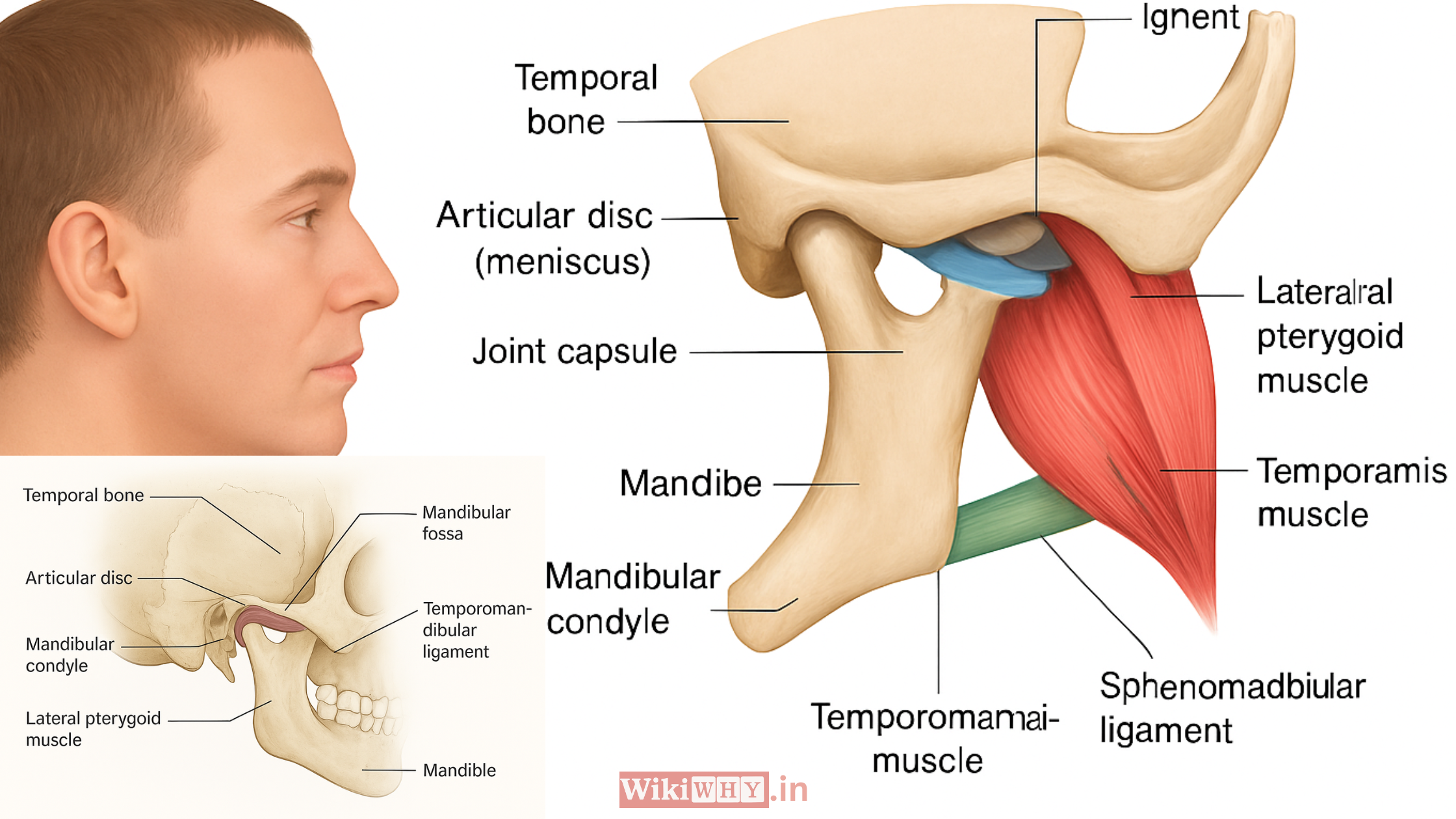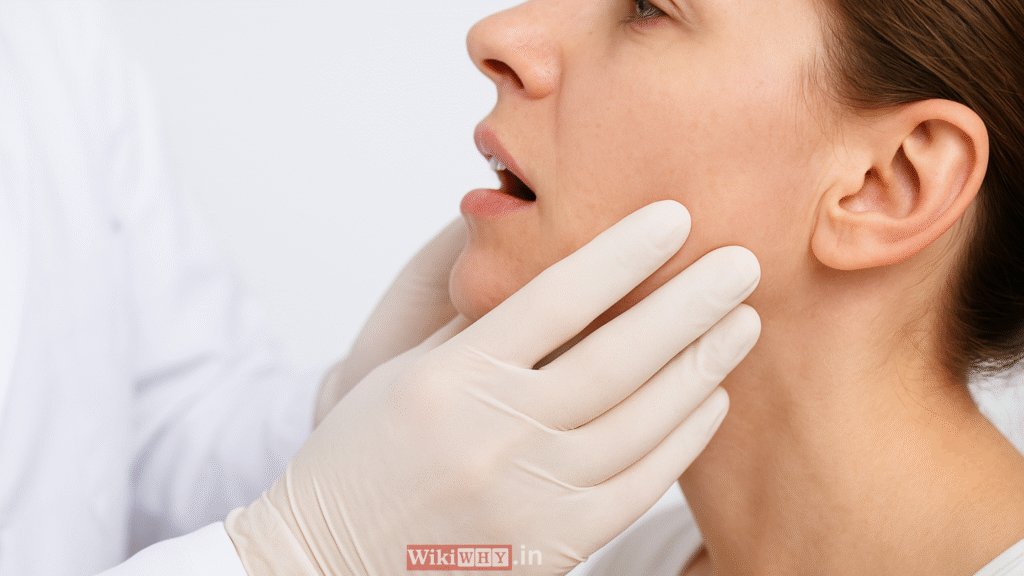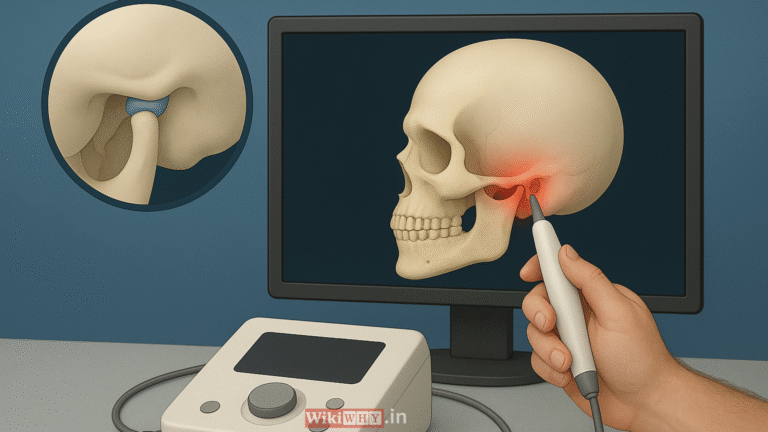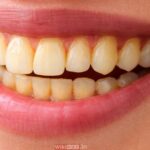Many people experience a clicking or popping sound in their jaw while eating, yawning, or even speaking. This often leads them to wonder, “Why does my jaw pop when I chew?”
The truth is, jaw popping is not always a sign of a serious issue, but it can sometimes indicate an underlying problem with your temporomandibular joint (TMJ).
However, when it occurs frequently, especially with pain or discomfort, it can become concerning. In recent years, dental and ear, nose, and throat (ENT) clinics have reported that more patients have been complaining about jaw-related issues.
Hence, understanding why your jaw pops is important. Because of this, you can distinguish between normal joint movement and potential disorders.
Understanding the Temporomandibular Joint (TMJ)

Your jaw connects to your skull through the temporomandibular joint (TMJ), located just in front of your ears.
This joint acts like a hinge, allowing your mouth to open, close, and move side to side.
Inside the TMJ, a small cartilage disc cushions movement between the jawbone and the skull.
If this disc shifts out of place, wears down, or becomes inflamed, you may experience clicking, popping, or pain.
In simple terms, your jaw is like a door hinge. If the hinge is misaligned or rusty, it makes noises. The same thing can happen with your jaw.
According to the National Institute of Dental and Craniofacial Research (NIDCR), temporomandibular joint (TMJ) disorders affect nearly 10 to 15 million Americans every year.
This means issues like jaw popping, clicking sounds, and discomfort while chewing are far more common than most people realize.
With millions experiencing these symptoms, it’s clear that TMJ-related jaw problems are not rare but a widespread health concern.
Common Causes of Jaw Popping When Chewing or Yawning
Jaw popping usually occurs due to issues affecting the TMJ or surrounding muscles. Here are the most common reasons:
1. Temporomandibular Joint Disorder (TMD or TMJD)
This is the most common cause of jaw popping. TMJD happens when the joint doesn’t function properly, often due to stress, teeth grinding, or injury. Symptoms may include:
- Popping or clicking sounds when chewing or yawning
- Jaw stiffness
- Pain near the ears or temples
- Headaches or facial pain
2. Disc Displacement in the TMJ
The cushioning disc inside the joint may slip out of position. When your jaw moves, the disc shifts, creating a popping or clicking sound. Sometimes, this causes no pain, but in severe cases, it can lock your jaw temporarily.
3. Arthritis
Arthritis isn’t limited to knees or hands—it can also affect your jaw. Osteoarthritis or rheumatoid arthritis can damage cartilage in the TMJ, leading to stiffness, popping, and pain.
4. Jaw Injury
A sudden blow to the face, whiplash, or even dental surgery may injure the TMJ. This trauma can disturb normal alignment, causing clicking and discomfort during chewing.
5. Teeth Grinding (Bruxism)
Many people grind or clench their teeth, especially during sleep. This habit puts stress on the jaw muscles and joint, leading to popping sounds and even enamel damage.
6. Poor Posture
It may surprise you, but posture plays a role. Slouching or constantly looking down at phones can strain neck and jaw muscles, contributing to misalignment and clicking.
7. Malocclusion (Misaligned Bite)
If your teeth don’t align properly, chewing may strain the TMJ. Orthodontic issues like overbite, underbite, or crooked teeth can all be culprits.
8. Stress and Muscle Tension
Stress often leads to clenching of the jaw, sometimes unconsciously. Constant tension in jaw muscles may trigger popping, headaches, and soreness.
When Should You Worry About Jaw Popping?
Jaw popping without pain is usually harmless. However, you should pay attention if you notice:
- Persistent or worsening pain near your jaw or ear
- Difficulty opening or closing your mouth fully
- Frequent headaches or earaches
- Jaw locking or feeling stuck
- Swelling around the face or jaw
If these symptoms occur, it’s time to consult a dentist or a TMJ specialist. In short
ignoring serious signs can make the condition harder to treat.
How Jaw Popping Is Diagnosed
Doctors and dentists use different methods to find out what’s causing jaw popping:
- Physical Examination – Feeling the jaw movement while you open and close your mouth.
- X-rays or CT scans – Checking the bones and joint alignment.
- MRI scans – Showing the position of the disc inside the TMJ.
- Dental checkup – Looking for misaligned teeth or grinding patterns.
Treatment Options for Jaw Popping

Treatment depends on the cause and severity. Fortunately, many cases improve with simple lifestyle changes.
Home Remedies and Self-Care
- Hot or Cold Compress: Applying heat relaxes muscles, while ice reduces swelling.
- Soft Diet: Avoid hard foods like nuts, gum, or chewy meat. Stick to soups, smoothies, and soft fruits.
- Jaw Exercises: Gentle stretches prescribed by a dentist or physical therapist can improve mobility.
- Relaxation Techniques: Meditation, yoga, or breathing exercises can reduce stress-related clenching.
Medical Treatments
- Mouth Guards or Splints: These dental devices prevent grinding and help reposition the jaw.
- Medication: Pain relievers, muscle relaxants, or anti-inflammatory drugs may be prescribed.
- Injections: Corticosteroid or Botox injections can ease inflammation or muscle tension.
- Physical Therapy: Strengthening and stretching exercises guided by professionals can help restore balance.
Surgical Treatments (For Severe Cases)
- Arthrocentesis: A minimally invasive procedure to flush out debris and reduce inflammation.
- Arthroscopy: A small camera and instruments are used to repair the joint.
- Open-Joint Surgery: For severe damage, surgeons may repair or replace the TMJ.
Preventing Jaw Popping
While not every case can be avoided, these steps may reduce the risk:
- Maintain good posture, especially when using phones or computers.
- Avoid chewing gum and very hard foods.
- Manage stress with exercise, meditation, or hobbies.
- Wear a mouth guard if you grind your teeth.
- Visit your dentist regularly for bite and alignment checks.
Common Myths About Jaw Popping
❌ Myth 1: Everyone’s jaw pops—it’s always normal.
✔ Some popping is harmless, but frequent or painful popping needs medical attention.
❌ Myth 2: Surgery is the only treatment.
✔ Most cases improve with self-care, lifestyle changes, and dental devices.
❌ Myth 3: Only older people get TMJ problems.
✔ TMJ issues can affect young people too, especially those with stress or poor posture habits.
Real-Life Example
Consider Rina, a 28-year-old software engineer. She noticed her jaw popping every time she chewed gum. At first, she ignored it. Months later, she began experiencing headaches and stiffness near her ears. A dental check revealed teeth grinding due to stress. With a mouth guard, relaxation exercises, and posture correction, her symptoms improved within weeks.
This shows that early detection and small lifestyle changes can prevent bigger problems.
Bottom Line
Jaw popping when chewing is common, and in many cases, it’s not dangerous. Still, frequent or painful popping shouldn’t be ignored.
The key is understanding the cause—whether it’s stress, grinding, arthritis, or injury—and taking the right steps to manage it.
From simple lifestyle changes to medical care, effective solutions exist. So, if your jaw pops often, don’t panic—but don’t overlook it either.
Seek professional advice, follow healthy habits, and protect your jaw before small symptoms turn into bigger problems.













